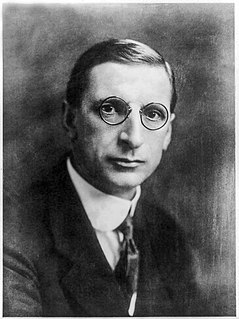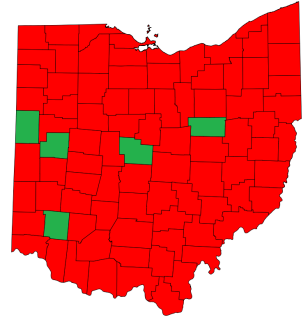
The Irish presidential election of 1959 was held on 17 June 1959. Éamon de Valera, then Taoiseach, was elected as president of Ireland. A referendum proposed by de Valera to replace the electoral system of proportional representation by means of the single transferable vote with first-past-the-post voting which was held on the same day was defeated by 48.2% to 52.8%.
Scottish independence is the political movement for Scotland to become a sovereign state independent from the United Kingdom.

The Single European Act (SEA) was the first major revision of the 1957 Treaty of Rome. The Act set the European Community an objective of establishing a single market by 31 December 1992, and codified European Political Cooperation, the forerunner of the European Union's Common Foreign and Security Policy. It was signed at Luxembourg on 17 February 1986, and at The Hague on 28 February 1986. It came into effect on 1 July 1987, under the Delors Commission.
The Third Amendment of the Constitution Act 1972 is an amendment to the Constitution of Ireland that permitted the State to join the European Communities, which would later become the European Union, and provided that European Community law would take precedence over the constitution. It was approved by referendum on 10 May 1972, and signed into law by the President of Ireland Éamon de Valera on 8 June of the same year.
The Tenth Amendment of the Constitution Act 1987 is an amendment to the Constitution of Ireland that permitted the state to ratify the Single European Act. It was approved by referendum on 26 May 1987 and signed into law on 22 June of the same year.
The Eleventh Amendment of the Constitution Act 1992 is an amendment to the Constitution of Ireland permitted the state to ratify the Treaty on European Union, commonly known as the Maastricht Treaty. It was approved by referendum on 18 June 1992 and signed into law on 16 July of the same year.

In California, a ballot proposition can be a referendum or an initiative measure that is submitted to the electorate for a direct decision or direct vote. If passed, it can alter one or more of the articles of the Constitution of California, one or more of the 29 California Codes, or another law in the California Statutes by clarifying current or adding statute(s) or removing current statute(s).

The 1951 Australian Referendum was held on 22 September 1951 and sought approval for the federal government to ban the Communist Party of Australia. It was not carried.

Referendums are held only occasionally by the Government of New Zealand. Referendums may be government-initiated or held in accordance with the Electoral Act 1993 or the Citizens Initiated Referenda Act 1993. Ten referendums have been held so far. Seven were government-led, and three were indicative citizen initiatives.

The Twenty-eighth Amendment of the Constitution Act 2009 is an amendment of the Constitution of Ireland which permitted the state to ratify the Treaty of Lisbon of the European Union. It was approved by referendum on 2 October 2009.

A referendum on Scottish independence from the United Kingdom took place on Thursday 18 September 2014. The referendum question was "Should Scotland be an independent country?", which voters answered with "Yes" or "No". The "No" side won, with 2,001,926 (55.3%) voting against independence and 1,617,989 (44.7%) voting in favour. The turnout of 84.6% was the highest recorded for an election or referendum in the United Kingdom since the introduction of universal suffrage.

General elections were held in Zambia on 31 October 1991 to elect a President and National Assembly. They were the first multi-party elections since 1968, and only the second multi-party elections since independence in 1964. The United National Independence Party (UNIP), which had led the country since independence, was comprehensively beaten by the Movement for Multi-Party Democracy (MMD). Kenneth Kaunda, who had been president since independence, was defeated in a landslide by MMD challenger Frederick Chiluba in the presidential elections, whilst the MMD won 125 of the 150 elected seats in the expanded National Assembly. Voter turnout was 45%.

The Ohio Collective Bargaining Limit Repeal appeared on the November 8, 2011 general election ballot in the state of Ohio as a veto referendum. Senate Bill 5 (SB5) was repealed by Ohio voters after a campaign by firefighters, police officers and teachers against the measure, which would have limited collective bargaining for public employees in the state. The formal title of the proposal that this measure nullified is Senate Bill 5. Among other provisions, SB 5 would have prevented unions from charging fair share dues to employees who opt out. The process to place the referendum on the ballot for voters to decide was completed by supporters, as signatures were certified by the Ohio Secretary of State. The group behind the referendum effort was the political action committee We Are Ohio.
The Thirtieth Amendment of the Constitution Act 2012 amended the Constitution of Ireland to permit Ireland to ratify the 2012 European Fiscal Compact and to preclude measures taken under the Compact from being held to be inconsistent with the Irish constitution. It was approved by referendum on 31 May 2012, by 60.3% to 39.7%, on a turnout of 50% and was signed into law by President Michael D. Higgins on 27 June 2012.
Referendums in Germany are an element of direct democracy. On the federal level only two types of a mandatory binding referendum exist – in changing the constitution and in changing the state territories.

The United Kingdom European Union membership referendum, also known as the EU referendum and the Brexit referendum, took place on 23 June 2016 in the United Kingdom (UK) and Gibraltar to ask the people if they wanted the country either to remain a member of or to leave the European Union (EU) under the provisions of the European Union Referendum Act 2015 and also the Political Parties, Elections and Referendums Act 2000. The referendum resulted in 51.9% of voters being in favour of leaving the EU. Although legally the referendum was non-binding, the government of that time had promised to implement the result, and it initiated the official EU withdrawal process on 29 March 2017, meaning that the UK is due to leave the EU before 11PM on 29 March 2019, UK time, when the two-year period for Brexit negotiations expires.

A constitutional referendum was held in Uruguay on 16 December 1951. The proposed amendments to the constitution were approved by 54% of voters.

A controversial referendum on the status of Crimea was held on March 16, 2014, by the legislature of the Autonomous Republic of Crimea and by the local government of Sevastopol. The referendum requested local populations whether they wanted to join Russia as a federal subject, or if they wanted to restore the 1992 Crimean constitution and Crimea's status as a part of Ukraine. After the events of Euromaidan, the referendum was held during a Russian military takeover of Crimea. The referendum is not internationally recognized by most countries.

The Thirty-fourth Amendment of the Constitution Act 2015 amended the Constitution of Ireland to permit marriage to be contracted by two persons without distinction as to their sex. Prior to the enactment, the Constitution was assumed to contain an implicit prohibition on same-sex marriage in the Republic of Ireland. It was approved at a referendum on 22 May 2015 by 62% of voters on a turnout of 61%. This was the first time that a state legalised same-sex marriage through a popular vote. Two legal challenges regarding the conduct of the referendum were dismissed on 30 July by the Court of Appeal, and the bill was signed into law by the President of Ireland on 29 August. The Marriage Act 2015 then amended marriage law to give effect to the constitutional amendment, which came into force on 16 November 2015, with the first same-sex marriage ceremony being held on 17 November 2015.

National Day for Yes was a gathering in Barcelona on 11 September 2017, the National Day of Catalonia, in support of Catalan independence. It was organized by the Catalan National Assembly (ANC), the main civil society organisations behind the massive pro-independence demonstrations held since 2012.















